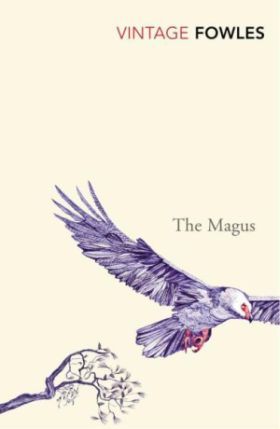Once upon a time, I read The French Lieutenant’s Woman and, to my surprise, rather enjoyed it. It’s not the kind of novel I normally go for, but the writing is good, and it had me intrigued despite myself. So I picked up The Magus, only to leave it on the shelf for a couple of years awaiting some mythical ‘round tuit‘. When it came to picking a book for a challenge that I should’ve read in school, I was pretty stuck, because I nearly always did my reading — the only exception being a Robin Hood novel which had Fabio on the cover. So I decided this more or less counted and dug in.
At first, it was good to dig into; the writing is good, evocative, solid. The descriptions of Greece are gorgeously claustrophobic, making me think at once of the violent myths of Ancient Greece and the sunny happily-ever-afters of Mary Stewart’s adventure romances set in that area of the world.
But… there’s something terribly same-y about the ennui of the narrator. It did remind me of a widely touted literary antecedent — Great Expectations — without characters as bold and dark as Miss Havisham. It reminded me too, somehow, of The Great Gatsby. Fowles’ introduction talks about how it’s a profoundly adolescent sort of story, and perhaps that’s why it also conjured up The Catcher in the Rye a little.
What do those three novels have in common? I wasn’t a great fan of any of them…
The Magus remains beautifully written throughout, but the tone drags decidedly and I just really longed for Stewart’s version of Greece, with characters who care and dare and do, rather than halfass around the place. Despite my two degrees in English Lit, I fear I’m proving myself terribly bad at reading literary fiction with appreciation! Alas. (But then again, I did love The French Lieutenant’s Woman…)
Rating: 2/5


Leave a Reply